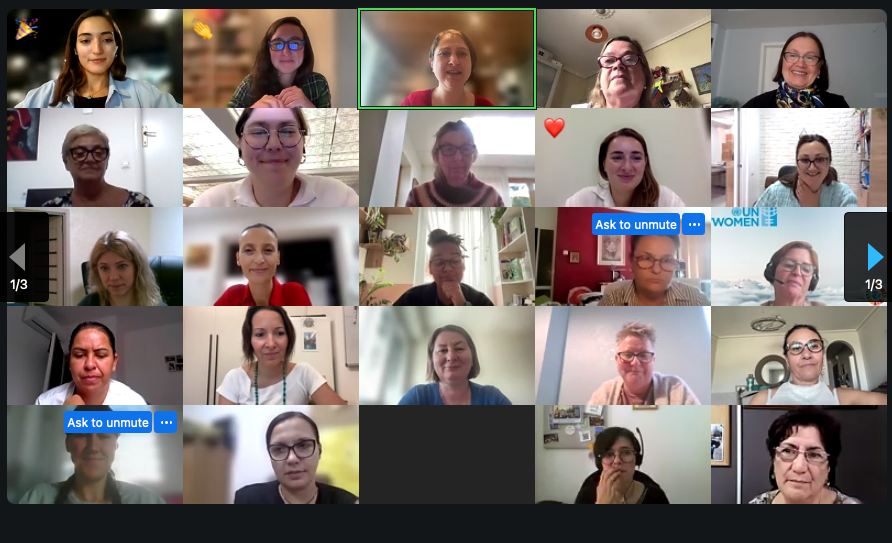Civil society organizations from Europe and Central Asia lead the way in shaping the Beijing+30 review process
Date:

UN Women Regional Office for Europe and Central Asia (ECARO) and the Beijing+30 Civil Society Steering Committee wrapped up their final civil society consultations on September 10, 2024. This marked the conclusion of a series of discussions in preparation for the Beijing+30 Regional Review Meeting, which will be held in Geneva on October 21-22, 2024. The review commemorates the 30th anniversary of the Beijing Declaration and Platform for Action (BPfA), the most progressive blueprint for advancing women’s rights, set to be celebrated in 2025.
The final consultation, attended by 120 civil society representatives, focused on two key BPfA themes, ‘Participation, accountability, and gender-responsive institutions’ and ‘Environmental conservation, protection, and rehabilitation’.
Belen Sanz Luque, UN Women Regional Director for Europe and Central Asia, stated that over the past three decades, monumental progress has been made for women and girls, particularly in this region, and this progress would not have been possible without an active civil society. “However, fundamental barriers persist, such as resistance to advancing gender equality, delays in passing legislation that protects women's rights, lack of funding, policy regression, and the misuse of language to promote discrimination,” Sanz Luque pointed out, stressing the need for continued vigilance and advocacy.
The consultation began with a review of outcomes from the previous two consultations, followed by a discussion aimed at contextualizing the challenges and recommendations around the two themes since BPfA+25, in preparation for Beijing+30.
The first session focused on ‘Participation, accountability, and gender-responsive institutions,’ where civil society representatives discussed the progress, challenges, and barriers to women’s participation in decision-making, with key issues including lack of funding, digital violence, and hate speech. Participants called for systemic approaches and presented key recommendations, such as the establishment of an international group to monitor violence against women in politics, ensuring state commitments to gender equality, and fostering intergenerational leadership through mentorship programs. They also stressed the importance of bridging the gap between gender equality legislation and its practical implementation. Nina Lozinschi from the Platform for Gender Equality in Moldova emphasized the critical role of institutional mechanisms in advancing gender equality. She highlighted the need for adequate resource allocation and the inclusion of an intersectional approach, stating, “Strengthening these mechanisms is crucial for maintaining progress.”
The second session addressed the intersection of gender and environmental issues. Maryam Majidova from Azerbaijan’s Gender Hub stressed the need for climate justice from a gender perspective, especially for women from vulnerable groups. She noted the distinct realities faced by women with disabilities, migrant women, and those in rural areas or involved in agro business. Mariam Tchantchaleishvili from Women’s Fund in Georgia echoed the importance of women's involvement in environmental decision-making, emphasizing the impact of corporate land grabs on local communities. She called for continued support for initiatives addressing violence against women, reproductive health, labor rights, and environmental justice.
The breakout group identified both challenges and opportunities, offering recommendations such as strengthening collaboration between governments and civil society on gender and climate policies, increasing women’s participation in energy and climate initiatives, and enhancing the capacity of Indigenous and rural women to contribute to climate justice. They also called for investment in capacity-building programs and the collection of gender-disaggregated data to assess the impact of climate policies.
As a follow-up to the consultation, civil society representatives were invited to share additional insights via an online survey. These insights will contribute to shaping future initiatives that empower women and promote lasting progress toward gender equality in the region.
You can access the consultation outcome document here.